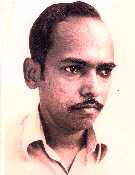

Home | Biodata | Biography | Photo Gallery | Publications | Tributes
Political - Socio - Economic-Surveys

 |

Home | Biodata | Biography | Photo Gallery | Publications | Tributes Political - Socio - Economic-Surveys |
 |
Over the past few years the Department of Statistics has been conducting statewide surveys quite frequently and various interesting fields and problems have been studied. Some of our findings have also received national attention. Why do we conduct these surveys? First, we are able to test out in the field what we learn in the classroom on the collection and processing of statistical data. Secondly, a survey which involves the touring of rural areas in teams of two's and three's brings us in direct contact with the rural people. Thirdly we wish to accelerate social change and through surveys we are able to focus the attention of the people and the government on social issues and needs. These we confess, are the academic reasons that lead us to launch out on our projects. But are these the only reasons? Is there something else that urges us on? It is difficult to find out the why's of human or animal behaviour for that matter. Why do the fish swim, the birds fly and men climb mountains? When we know the answers to these questions we will know why we spend so much time and energy in surveys!
When we conducted a state-wide survey in 1976 on children's vision, and on public opinion on political parties we thought it would be the last survey of that kind since we did not expect any improvement in the political situation. Now that people are no longer constrained they are willing to articulate their opinions and views more freely and public opinion surveys have become possible once again.
There are four major areas that we have investigated in this multi-purpose survey. In the first survey on adult literacy we have also focused attention on the fact that visual impairment problems have to be solved and spectacles have to be provided if we are serious about adult literacy. The second area is on school drop-outs who, when they become adults, remain illiterate. The third area is on the opinion of the common man on emergency and other issues. The fourth area is on the relative popularity of the different political parties in January 1978.
About 1,800 adults were contacted in January 1978 by 90 students of the department of statistics who visited about 400 villages and towns for this purpose. Choosing of respondents using random sampling techniques is a time-consuming work since the villages have to be chosen first. The principle is that every adult in Tamil Nadu has the same chance of being chosen in our sample. Only then will the opinion of the respondents in our sample truly represent the views of the people of Tamil Nadu. To achieve a true cross-section of the people is the challenge that we take up in the survey.
Data-processing for the survey was done by the I M.Sc. (Statistics) students making use of the IBM 370/155 computer at the I IT Computer Centre in Madras.